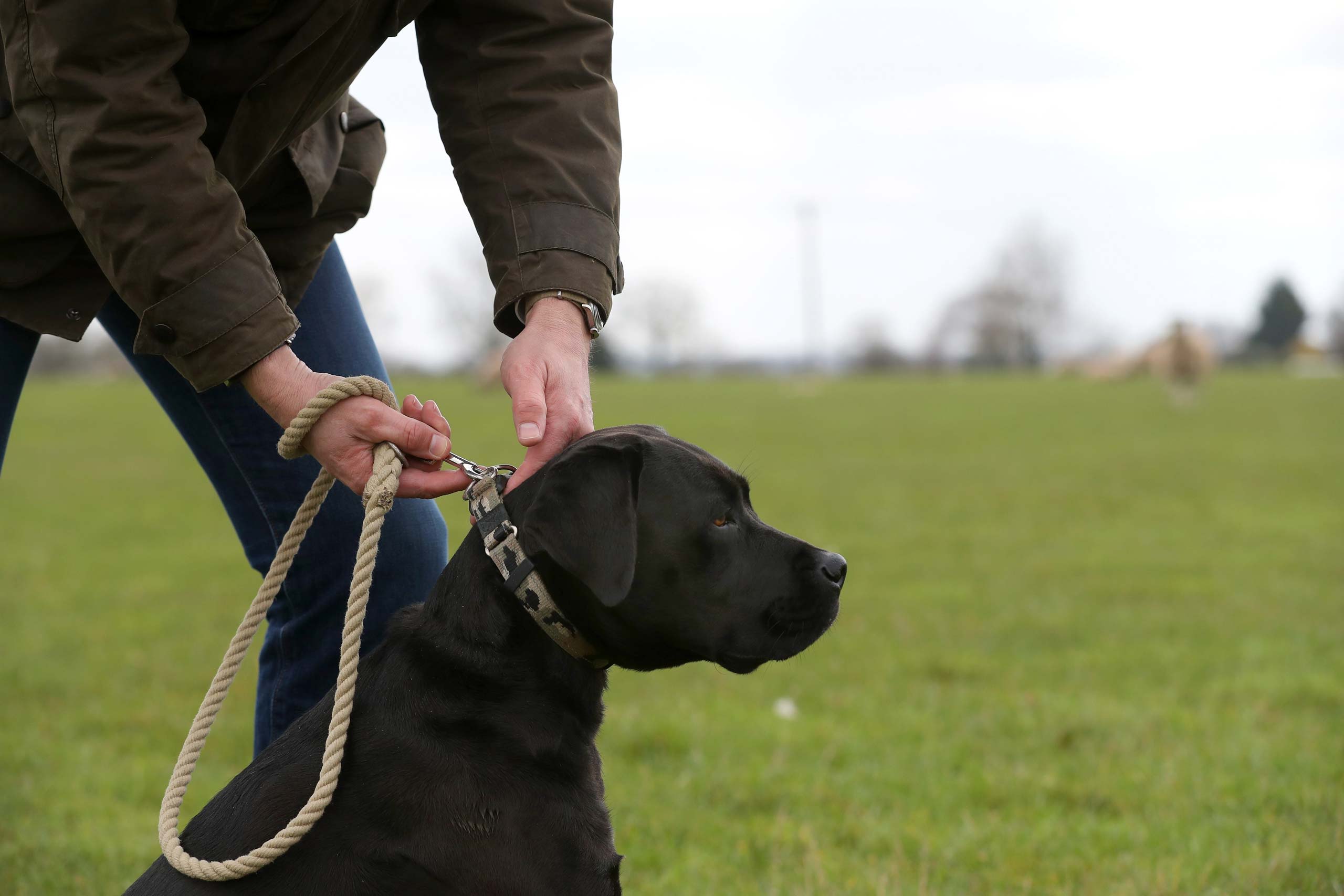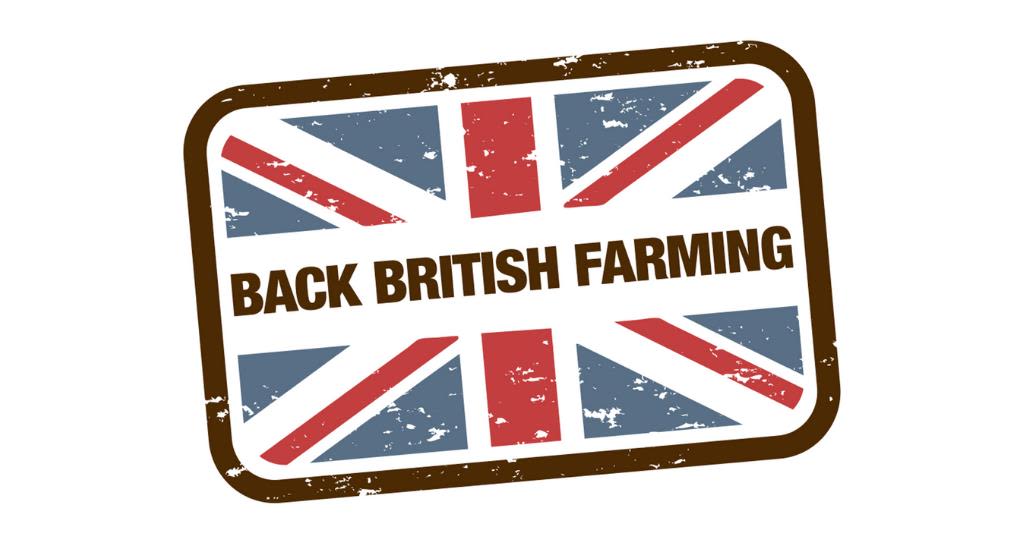Help stamp out rural crime
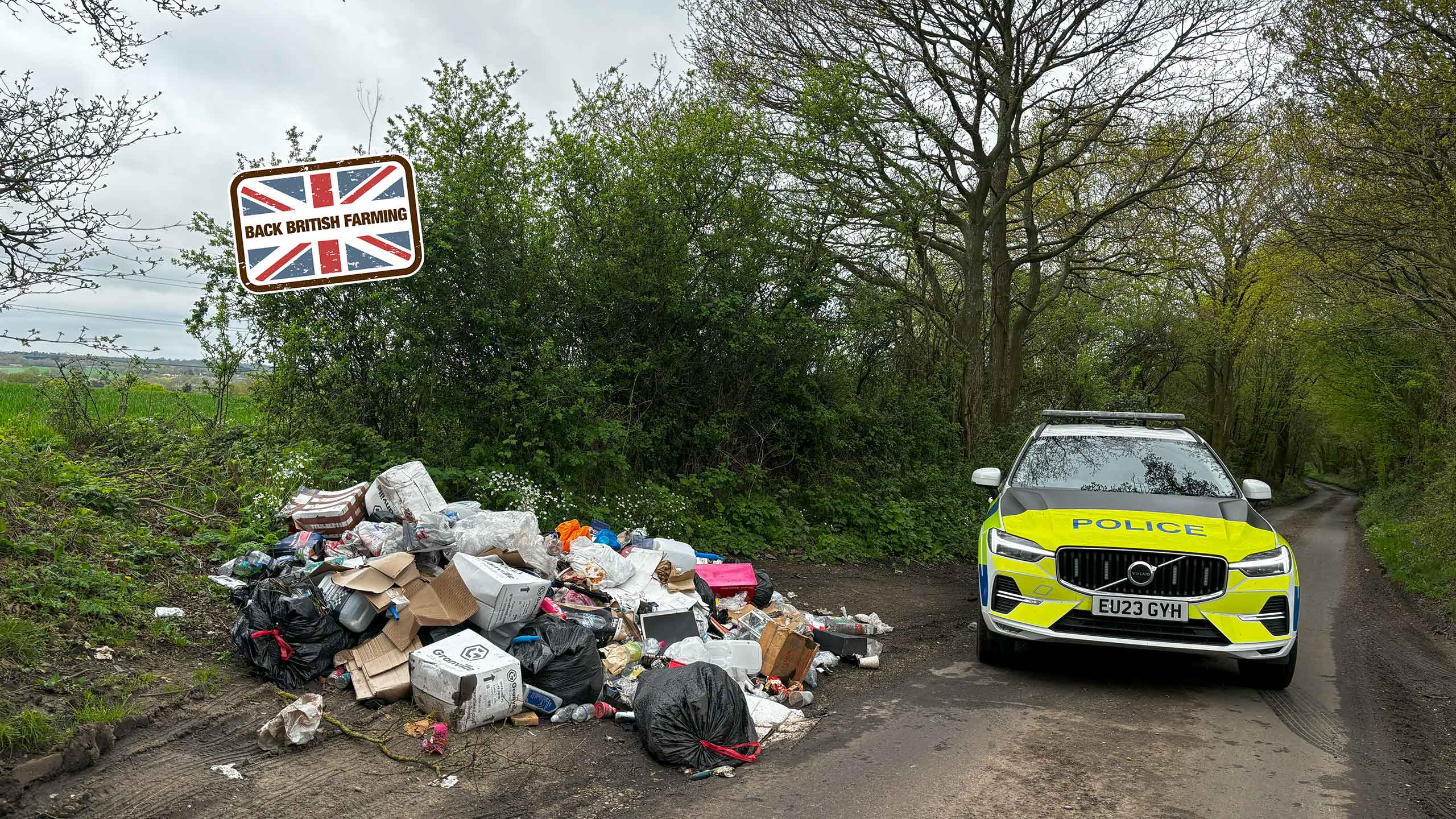
“Not only does rural crime significantly cost the UK on a national level, but it also has a significant impact personally to those farm businesses and farming families financially and emotionally affected, leaving many rural communities feeling vulnerable and intimidated.”
Rachel Hallos, Vice-president of the National Farmers’ Union
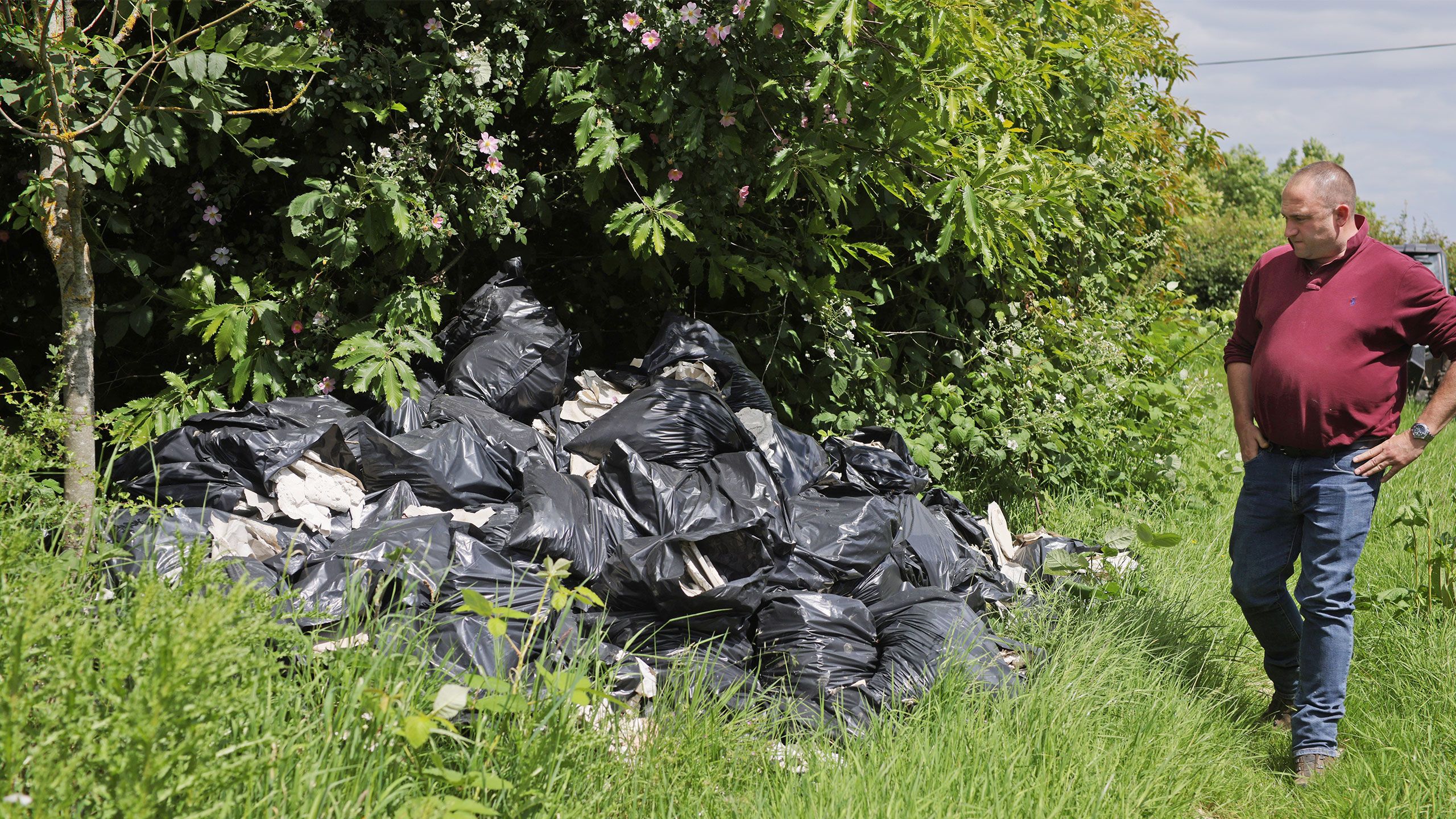
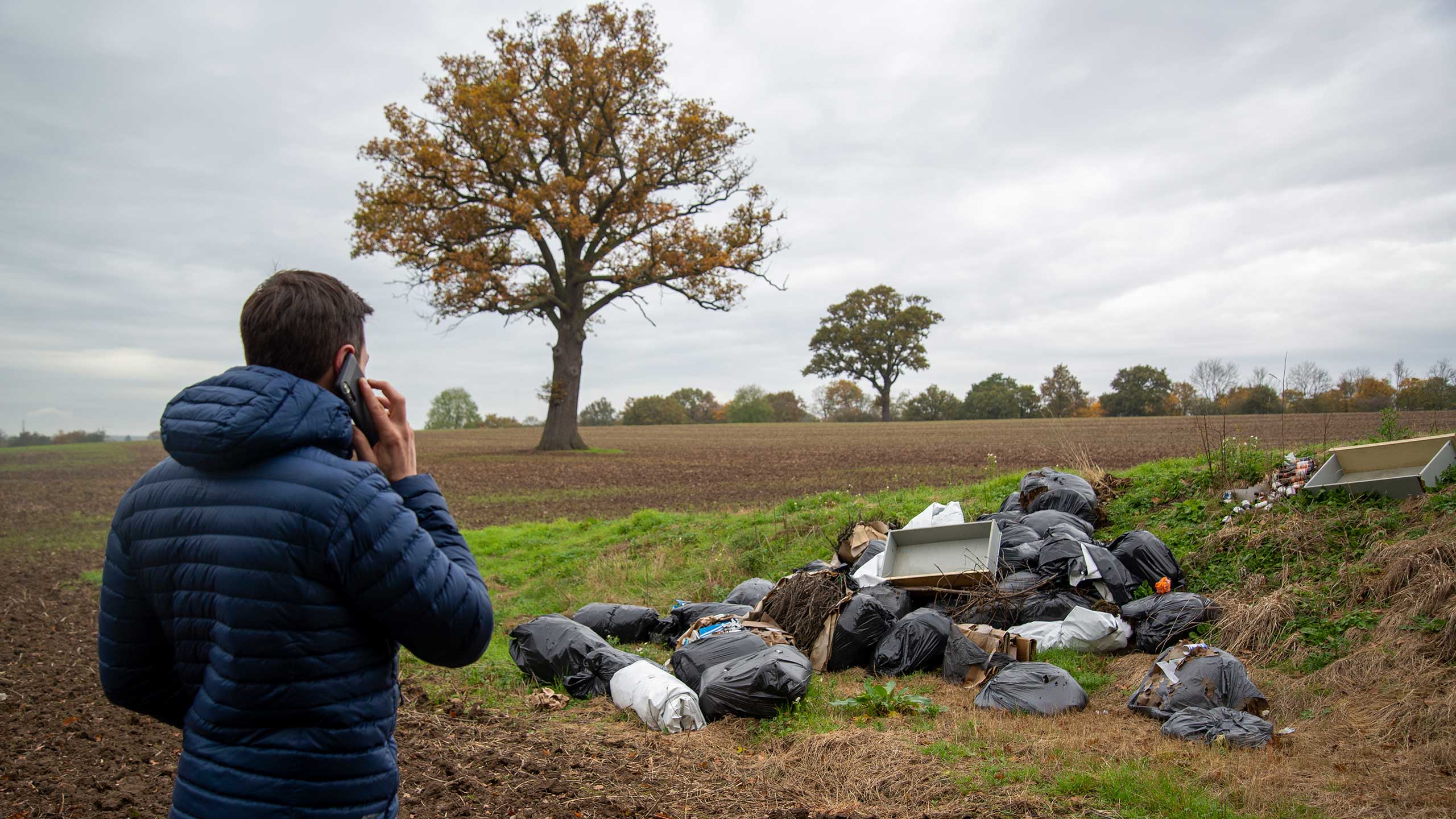
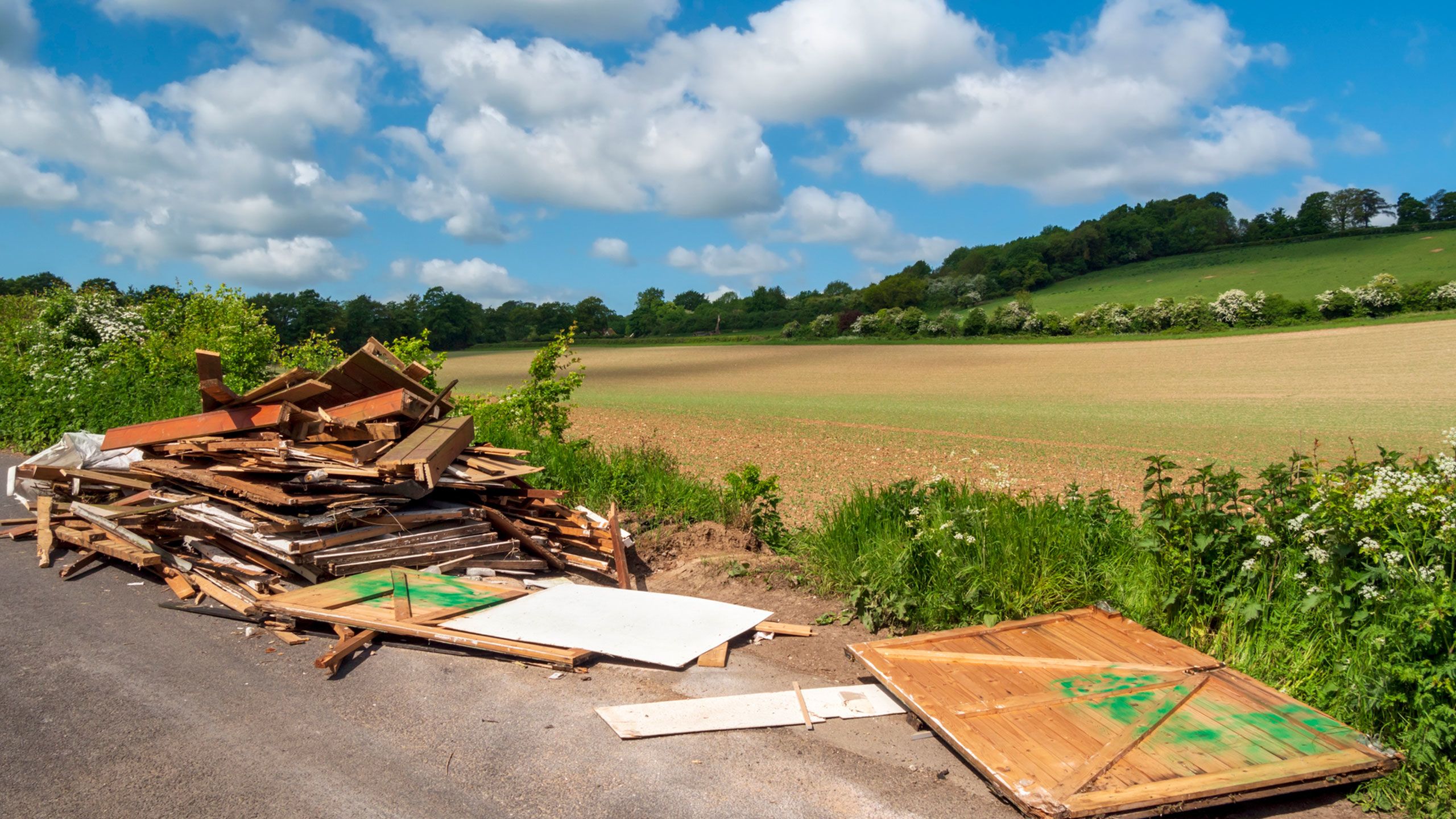
Rural crime is a big concern for UK farmers.
In 2024, rural crime cost the UK an estimated £44.1m, according to NFU Mutual report into the cost of rural crime.
Even if you are not directly impacted by the devastating effects of rural crime, you can still play a part to prevent numerous instances of crime that affect your community.
Farms are targets for a variety of different crimes.
These include fly-tipping, machinery and livestock theft, livestock butchery and hare coursing.
The headline figures represent a snapshot of a far wider problem.
What you can do to help:
By keeping your eyes and ears open, identifying suspicious behaviour, and reporting anything that seems odd and unusual, everyone in your rural community is able to provide intelligence and work to make our countryside a safer place.
So if you are out and about in the countryside, be observant and report odd, unusual or suspicious behaviour.
Do not intervene if you see something suspicious, but take photos as evidence if it’s safe to do so.
Not sure when to report? Use the following steps to help:
- If a crime is in progress: Dial 999.
- If you want to report a crime: Dial 101.
Top tips if you’re having a clean-out
Householders have a duty of care to ensure that their waste is disposed of lawfully.
Please follow current government advice – get recycling, rubbish and waste guidance from your local council.
Make sure your waste doesn't add to the 1.09 million incidents of fly-tipping reported to local authorities in the last year.
To help, follow the S.C.R.A.P code to ensure you're doing the right thing:
Suspect all waste carriers. Don’t let them take your rubbish until they provide proof of registration. Note their vehicle’s registration plate.
Check that a waste carrier is registered on the Environment Agency’s website.
Refuse any unexpected offers to have your rubbish taken away.
Ask how your rubbish will be disposed of – seek evidence of this.
Paperwork must be obtained: a proper invoice, waste transfer note or receipt, including a description of the waste being removed and the waste carrier’s contact details.
Failure to make the appropriate checks can result in the unsuspecting householder issued with a £400 fixed penalty notice or fined up to £5,000 by councils if your household waste is fly-tipped.
Fly-tipping
Fly-tipping is the illegal dumping of waste on kerbsides, farm land and open land in urban environments.
Incidents across the country are still high, blighting our landscape.
The latest government fly-tipping statistics show that local authorities dealt with over 1.26 million fly-tipping incidents in the year up to March 2025.
Fly-tipping can be dangerous to human health, wildlife and farm animals.
It blights our countryside and provides a huge problem for landowners as it’s their responsibility to pay for the costly removal.
The average clear-up cost for a farmer is £1000 as increasingly significant quantities of waste are dumped.
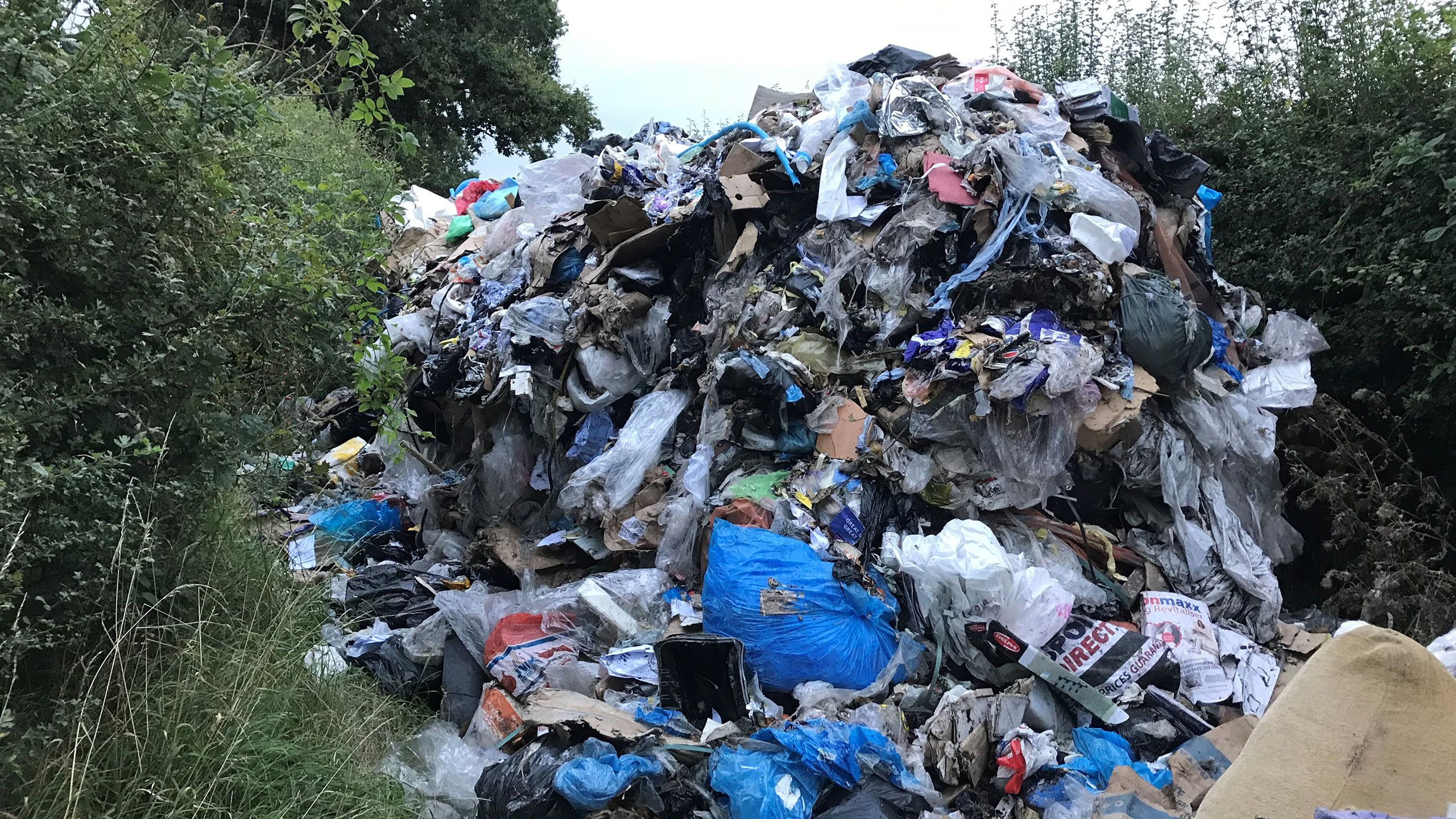
Garden waste
Tipping green waste into a farmer’s field, or adjacent to the public highway is a form of fly-tipping, which is an offence – but few people would assume they are doing something illegal because it’s ‘green’ and not ‘rubbish’.
Green waste is treated in the same way as rubbish and can also cause harm to cows and sheep, giving them life threatening digestive problems. Some common garden plants can be poisonous to them.
“It can be extremely distressing for farmers to see the animals they work so hard for, harmed in this way. I would urge members of the public to make themselves aware of the law and the potentially fatal consequences of ‘green fly-tipping.”
Anyone caught fly-tipping waste could now be faced with a fixed penalty notice of up to £1000.
Under the Environmental Protection Act 1990, all householders have a duty of care to ensure that their refuse, including green waste is passed to an authorised person or to a person for authorised transport purposes who can dispose of the waste lawfully.
Householders not taking reasonable measures to ensure that their waste is transferred to an authorised person will be committing an offence and could face a fixed penalty notice of up to £600.
For advice on green recycling, please contact your local council. Visit: GOV.UK | Recycling collections
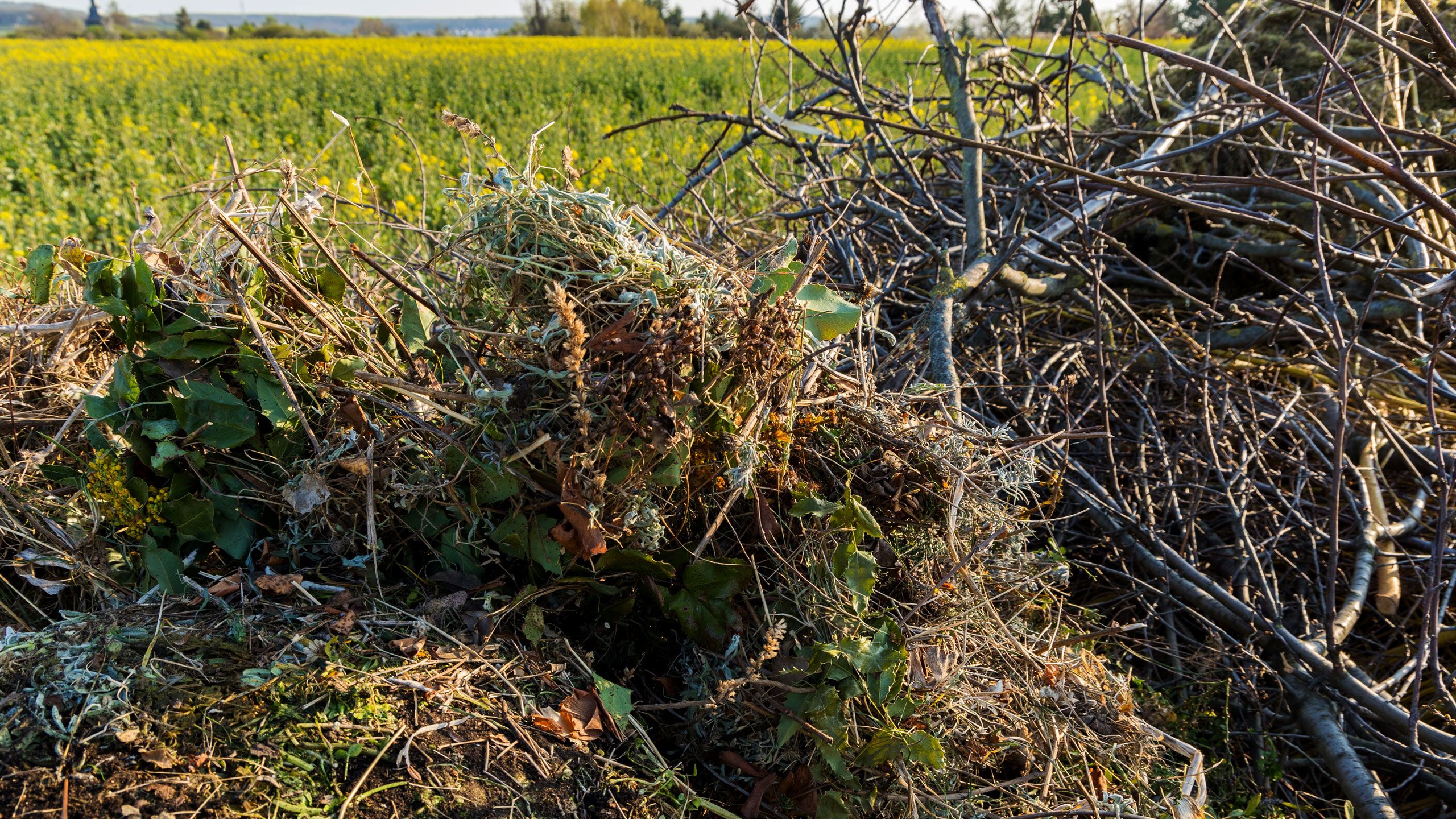
Hare coursing
Hare coursing is the pursuit of hares with dogs, often for the purposes of betting.
It takes place on areas of flat, open land where the dogs can easily and visibly pursue the hare.
It is typically carried out by large groups of people who travel long distances.
It is illegal under the Hunting Act but it also has other impacts, for example: fences and gates can be damaged by vehicles forcibly trying to gain access to land.
Hare coursing activity can be conducted by gangs driven by gambling, who are intimidating to farmers who often work alone in fields.
They not only trespass and cause damage to property and land but also impact wildlife and instances of violence have been reported.
A farmer who for obvious reasons did not wish to be identified says he fears for the safety of his family as the criminal gangs who hare course on his land use violence and intimidation.
He cites without police support the instances are increasing and his land is being damaged by the ongoing illegal activity.
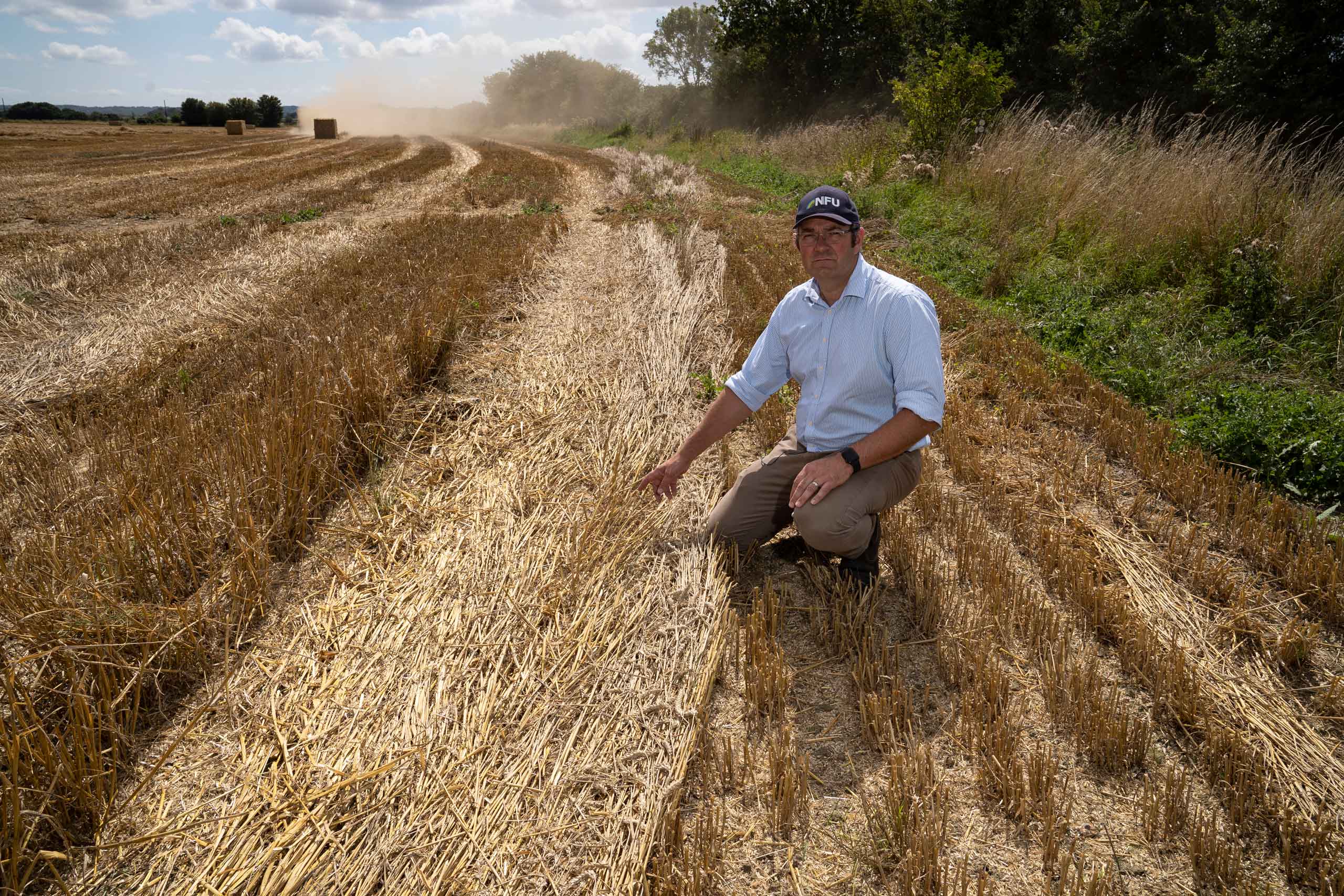
Theft
Livestock theft
This can be a lucrative criminal activity due to the high prices that can often be received for cattle and sheep.
The crime can range from losing hundreds of animals to just one or two.
The loss of stock leads to significant financial losses and can also have further impacts on the business such as losing breeding stock.
Each week, at least one farmer falls victim to cases of theft or butchery, losing hundreds of livestock, which are rarely traced.
The financial and emotional cost of livestock theft is huge, imagine losing animals you’ve nurtured since birth, it’s a cruel business.
Machinery theft
Farm machinery is often expensive and the business is dependent on it.
For example, a stolen tractor could mean crops can’t be harvested or a stolen quad bike means livestock can’t be fed.
There isn’t a big market for second-hand farm machinery in the UK, so high value items can often be stolen to order and then sent abroad.
Farmers have experienced violence when confronting thieves on their land – which is often remote and difficult to secure.
Theft in the countryside is on the increase and it’s not just machinery and livestock being stolen.
Even farmers who’ve invested in additional security suffer on-going attacks.
The Scott’s who have an arable farm in the South East spent £15,000 on additional security after a violent robbery, but only six months later they were again victims with several vehicles being stolen and Mr Scott requiring hospital treatment.
With many farms being isolated and communications sometimes poor, organised and opportunist thieves are increasingly targeting them, sometimes with violent consequences.
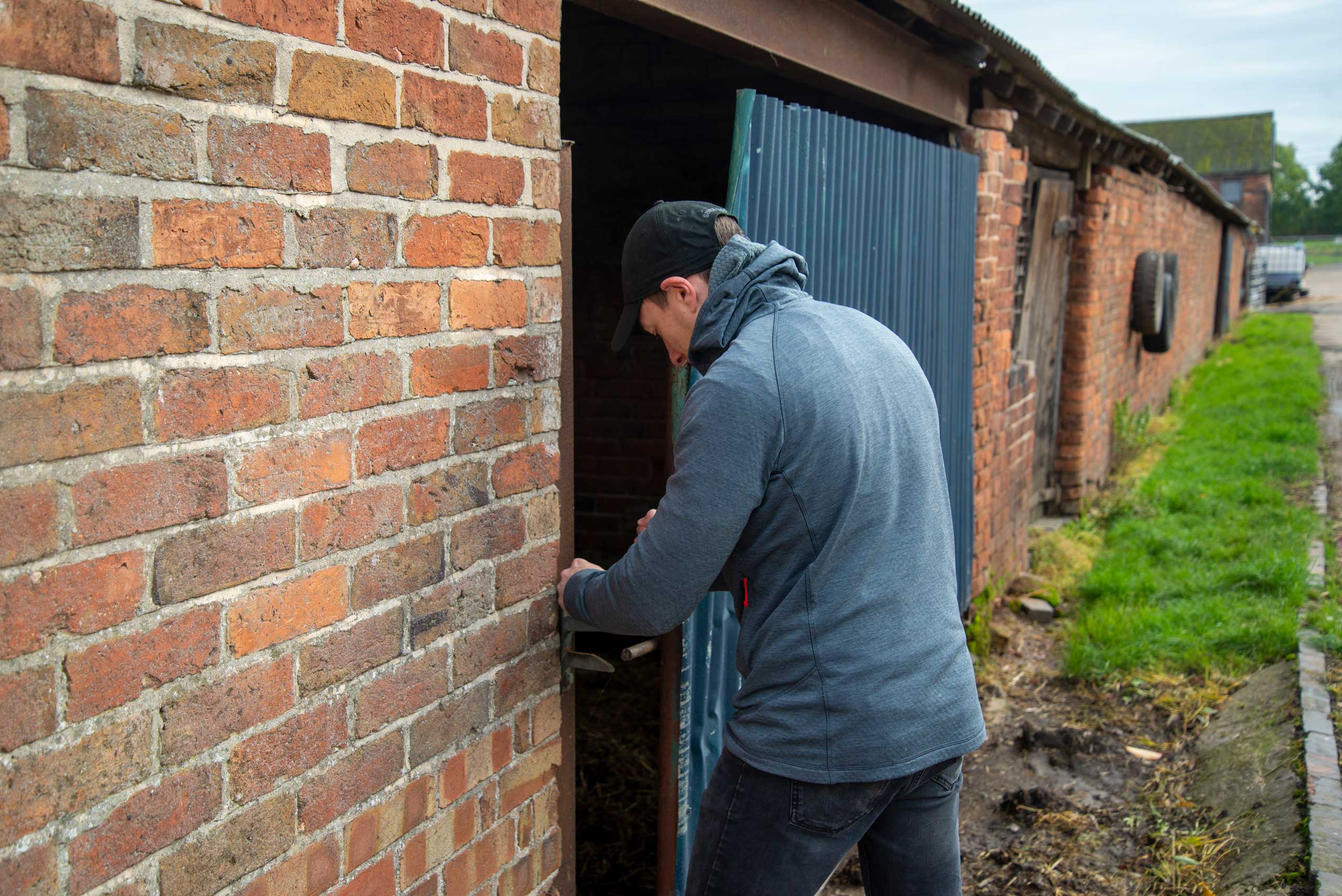
Livestock worrying
Livestock worrying has huge implications for farmers across the country.
Dog attacks on livestock cost farmers an estimated £1.6 million each year and this figure rose by nearly 50% across the UK in 2016.
Dog attacks on sheep
Thousands of sheep and cattle die because of injuries caused by dogs every year and livestock worrying cost the industry an estimated £1.8 million in 2022.
But this figure is just the tip of the iceberg as many losses are uninsured and often unaccounted for.
Therefore, the reporting of these incidents is key to be able to understand the true scale and impact of dog attacks on farm.
For further information on how to enjoy the countryside responsibly with your dog, please visit our dog walking section.
